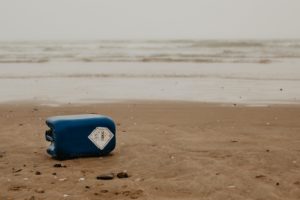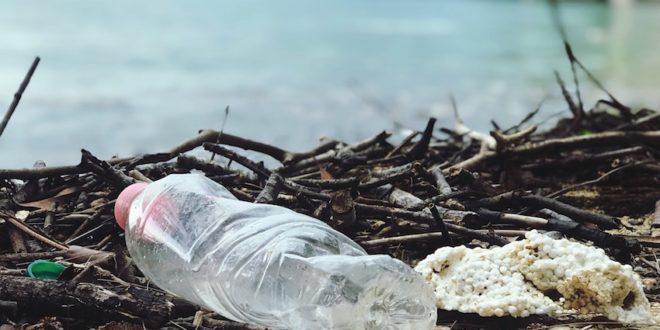Foraging in the gutters was most definitely not in my retirement plan. It never even remotely featured in the fine print.
Call it what you like – litter, trash, rubbish, garbage, waste, or refuse – it is on our streets. Sadly, human behaviour is responsible for putting it there. I spend up to two hours a day picking up litter in my neighbourhood. I do this because it is something I can do to contribute to the well-being of the land I feel overwhelmingly grateful to inhabit.
The only possible explanation I have for my entry into the litter realm so late in life might sound a little flaky. Still, I guess it makes sense, given my soul-searching musings over the years, I would one day bump into my own footprint on this planet.
People say Covid-19 turned the world upside down. But I felt a grinding tilt in my inner psyche that something was not right a year earlier. It started with the Christchurch mosque shootings and ended with Greta Thunberg’s fiery climate change speech. Both these events rattled the cage of my inner world, disturbing my sense of stability. By the end of 2019, my belief and hope for a better, cleaner, and more loving world lay fragile and tenuous. The job of changing the world seemed too big for just an ordinary, about to be, pensioner. What could I do?
Was it a coincidence that just as I was digging into my deepest needs and wishes, I noticed how much rubbish there was on the ground around me? I don’t know, but I do know climate change and environmental issues feel paralysing when I think about them on a global scale. Melting ice glaciers, deforestation, fossil fuels, and overpopulation do not seem to be issues I can practically do something about. But saving one wet-wipe or a small piece of plastic from entering our oceans and threatening marine life is much more achievable.
According to estimates, about 80 % of litter found in oceans comes from land-based sources, from human hands. Rubbish chokes marine animals and plant life. These marine species play a significant role in the life cycle and in absorbing carbon emissions.
When you notice rubbish, you see it everywhere. The frequent Papamoa coastal winds mean trash rapidly ends up on our beach and into the ocean. Polystyrene plastics is one of the most common plastic polluters found in the sea. It breaks down into microplastics over time, and it just ends up in the food chain of marine life. Poor waste management practices on building sites are a particular concern. I have arrived home with bags full of polystyrene from areas where building development occurs, especially after stormy weather when it blows from over-filled waste management bins. It takes between 400 – 500 years for polystyrene to decompose. All it would take is a cover over these bins when winds are forecast to prevent this from happening.
Over-flowing public bins around shopping centres and beaches also contribute to much of the rubbish I pick up. One of my busiest days is following rubbish collection day. High winds lift the lids on curbside bins, and loose trash blows from the containers during the automated rubbish truck process.
Lightweight trash such as aluminium chip bags, lolly wrappers, tissues, wet wipes, and lollipop sticks can be bagged before being discarded to stop these items from blowing out on pick-up. It is surprising how much light rubbish you can fit in one of those Ecopack compostable bags you find in the fruit and vegetable department of the supermarket.
Much of the rubbish I find is at skateboard parks, around schools, public playgrounds, reserves, and sports fields.
One particular week I picked up seventy-six lollipop sticks and fifty-one Mentos and TNT wrappers. Plastic in the marine environment never goes away. Small items, like lollipop sticks and wrappers, not only litter our beaches and neighbourhoods but, because of their size, they also pose a severe threat to sea turtles and other marine life.
Our new waste bins arrived a few weeks ago. The size of the yellow lidded recycling bin baffled me at first. We are a small family, and there is no way we would fill this bin every week from our own household use. Although I will be ready with a full container on the first week of collection in July because I have been filling my bin with discarded plastic drink bottles and cans found on my litter run for the past few weeks. According to an environmental source, https://www.theworldcounts.com/, only 1 out of 5 plastic bottles gets recycled. The rest just becomes litter or get buried somewhere. Picking up this recyclable trash is an excellent way to ensure we can put out a full recycling bin each week.
When the prickly subjects of climate change or ‘the environment’ rear their head, we all have our opinions, and we’re pretty good at voicing them. But that’s where we usually leave it. “Not me, not mine, not my responsibility.”
“The greatest threat to the environment is the belief that someone else will save it for us,” says environmental leader and public speaker Robert Swan, OBE.
We tend to look to the government for answers or hold the government responsible for environmental problems. Yes, it is overwhelming, and we want someone else to fix it, but the fact is, we all need to do something. We ALL (that is, you and I) can do something.
Whichever way you look at it, litter that is dropped on land is done by human hand. Not everyone litters intentionally. It does not matter that you, or I, did not drop it. We may not have been responsible for putting the rubbish on the ground, but once noticed, then it does become our responsibility to pick it up.
So now, here I am in my retirement, seeking, searching, and foraging for litter as though my life depends on it – and in a way it does – for all of us.
By Margaret Cunningham









Join the Discussion
Type out your comment here:
You must be logged in to post a comment.